On the day Putin’s Russian troops invade Ukraine it feels more important than ever to contemplate both the joy and the fragility of our freedom to roam.
Freedom to Roam: The Rhythms of Migration, an evening of music and film, arrives at Manchester’s Stoller Hall as part of a tour, providing a space that sparks both an appreciation of our planet and a motivation to protect it.
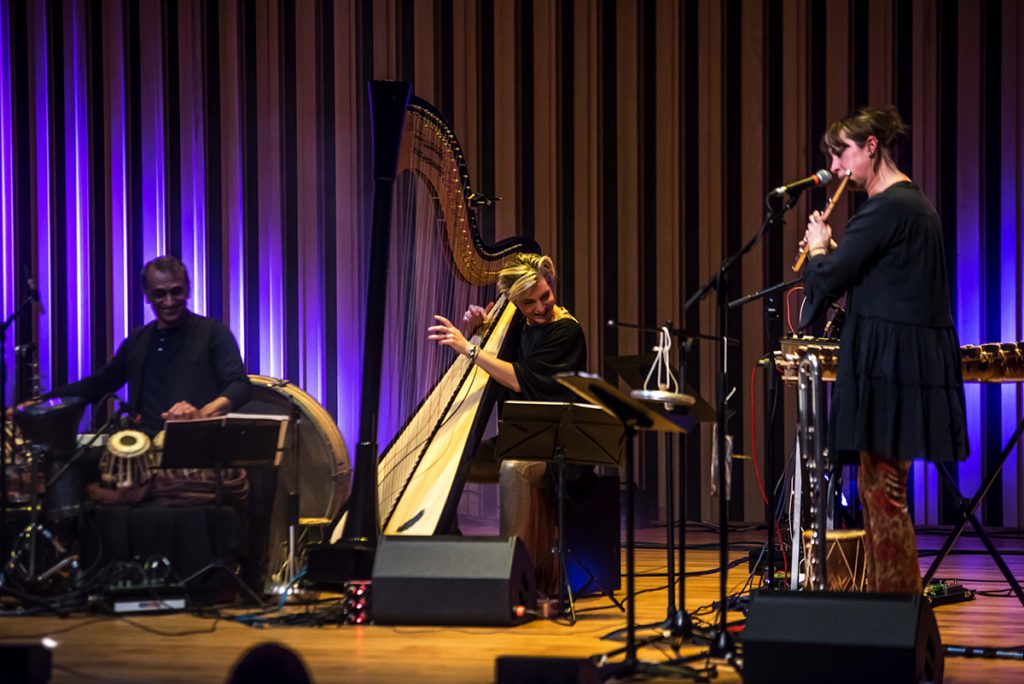
“Imagine a world where 80% of our news is about the positive things people are doing in the world?” asks Eliza Marshall when introducing the event she was inspired to create after a visit to the Inner Hebrides. Her call to action is passionate, idealistic and not without humour. The next two hours is spent imagining such a world.
The evening starts with ‘Connected’ – a half-hour documentary directed by award-winning director, Nicholas Jones’s and co-produced by Eliza. In a series of vignettes it explores issues around rewilding, conservation, migration, mental health and climate change. Watching a lone kayaker off the Isle of Mull feels a million miles from the busy streets of the city we’ve just left outside. But even if there is no immediate recognition for the typical city dweller, the film sparks a longing and a recognition that we are all connected. The conservationist reintroducing Beavers into the rivers of Devon to help prevent flooding feels particularly pertinent.
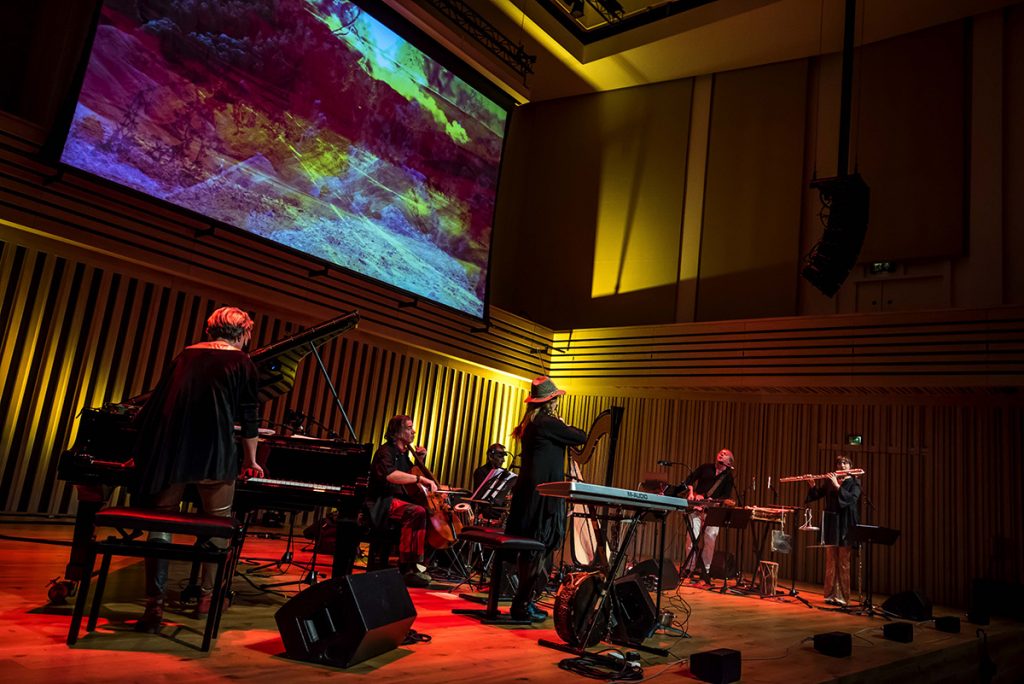
‘Feels’ is the optimum word because the evening is all about emotion and the transporting power of music. After the interval, Eliza, on flute, leads a six-piece orchestra to play her Rhythms of Migration album, in full, live on stage. She is joined by co-writers, harpist Catrin Finch, violinist Jackie Shave and Dónal Rogers on guitars/bass who all also take turns on piano; and guests Kuljit Bhamra on percussion and Robert Irvine on the cello.
The album’s 14 tracks range from joyfully optimistic, to quietly meditative and then jarringly brutal with the music overlaid by the sound of hammers, tin cans and chains. The music itself is migratory in influence encompassing classical, folk, new age, world music, African, Indian, and Native American styles.
During the concert the screen from the earlier film becomes a projector for visual art, which is partly abstract in its layering of landscapes, people and animals as it takes us on a whistle-stop tour of the planet. The colours and scenes become hypnotic, but our eyes are always drawn back to the musicians whose energy and range of instruments from the majestic grand piano to the quirky waterphone are fascinating to watch. It is also a real treat to see and hear the other worldly, ethereal sound of the harp in a solo that showcases its full range.
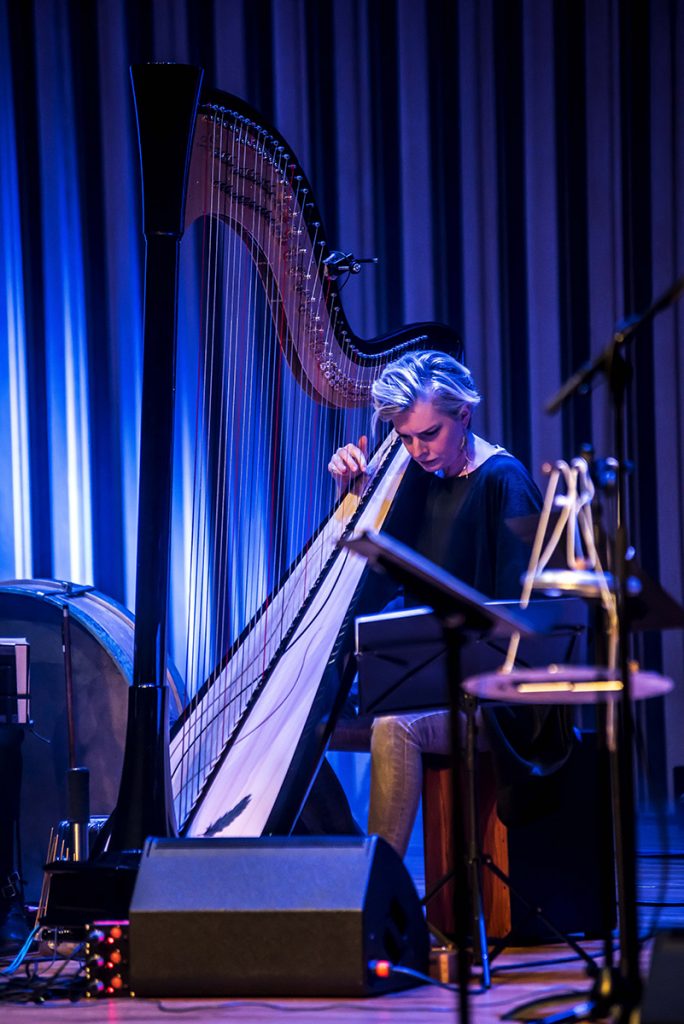
The album and the evening ends with each musician pounding a beat that resonates inside and bursts out again in the stamp of feet. It’s the sound of drums, the beat of a heart – it’s the rhythm of life and it’s wonderful.
Freedom to Roam: The Rhythms of Migration launched a year long Sounds of Nature programme at Stoller Hall, Manchester on 24 February 2022.

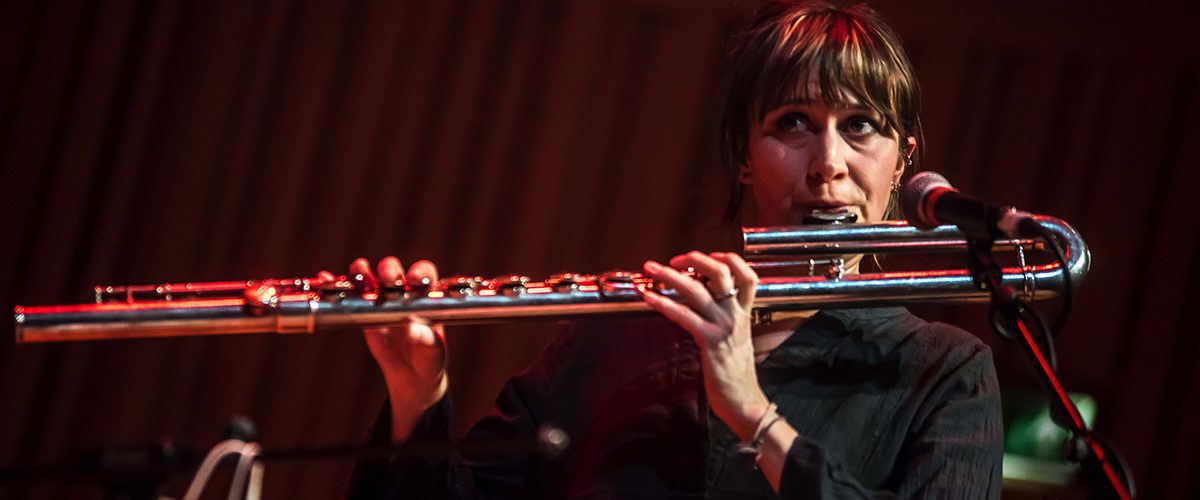



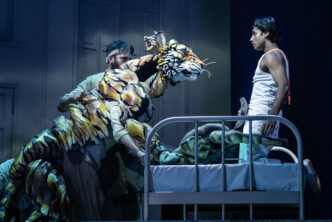
Great review for a great piece of music from a group of magical musicians…..